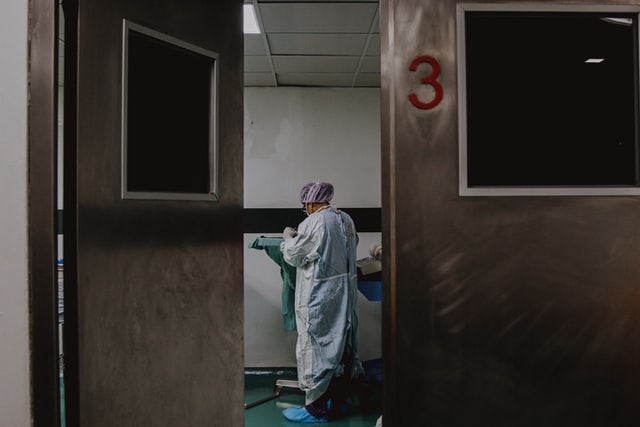Barely one week after the previous announcement, Belgian hospitals have been asked to scale up once again, meaning they must reserve 50% of beds in their intensive care units for Covid-19 patients by Friday.
On Monday, the Hospital Transport & Surge Capacity Committee (HTSC) asked hospitals to switch from phase 1A+ to phase 1B, which means that half instead of one-third of all ICU beds must be kept free for Covid patients.
"In the other wards (non-intensive care), they must also keep four to six times as many beds free for Covid patients," Wendy Lee, spokesperson for the Federal Public Health Service, confirmed to The Brussels Times.
"Additionally, we ask that non-urgent care be postponed," she said. Urgent care, however, is still allowed to continue as normal.
The HTSC also called for the activation of the 'BABI plan,' the plan for the spread of burn care. "This allows burn care centres to make beds available as ICU beds for other conditions," Lee added.
Related News
- 'Twenty more every day': 533 Covid patients in ICU in Belgian hospitals
- Belgium recommended strict new measures in leaked document: What are they?
- Consultative Committee brought forward to Wednesday
It was only last Wednesday that the decision was made to keep 33% of ICU beds for Covid-19 patients (phase 1A+), meaning that 666 (of 2,000) ICU beds were made available across the country.
According to the latest figures on Monday, a total of 2,648 Covid patients are admitted to Belgian hospitals, of which 533 are in intensive care.
However, an average of 20 new Covid patients is admitted to ICU every day, meaning that some 650 intensive care beds would be taken up next week, a number that could even rise to 800 within two weeks, virologist Steven Van Gucht said.
Yo-yo situation
In the meantime, the largest umbrella organisation of hospitals and residential care centres in Flanders, Zorgnet-Icuro, announced in a statement on Monday that the care system is in danger of being "disrupted."
The reason for this is the increase in the number of Covid-19 patients in the hospitals, which is putting a lot of pressure on hospitals for the third time in a year and a half, as well as staff outages.
The consequences of the measure for non-Covid patients are far-reaching: surgical procedures have to be postponed, surgery rooms could be closed and difficult procedures requiring intensive care afterwards can no longer be performed, they stressed.
"We know that once again not everyone can get the care to which they are entitled," said Managing Director Margot Cloet. "This yo-yo situation is putting too much of a strain on what our care is all about: the know-how and resilience of the healthcare workers. Without them, we are nowhere."

